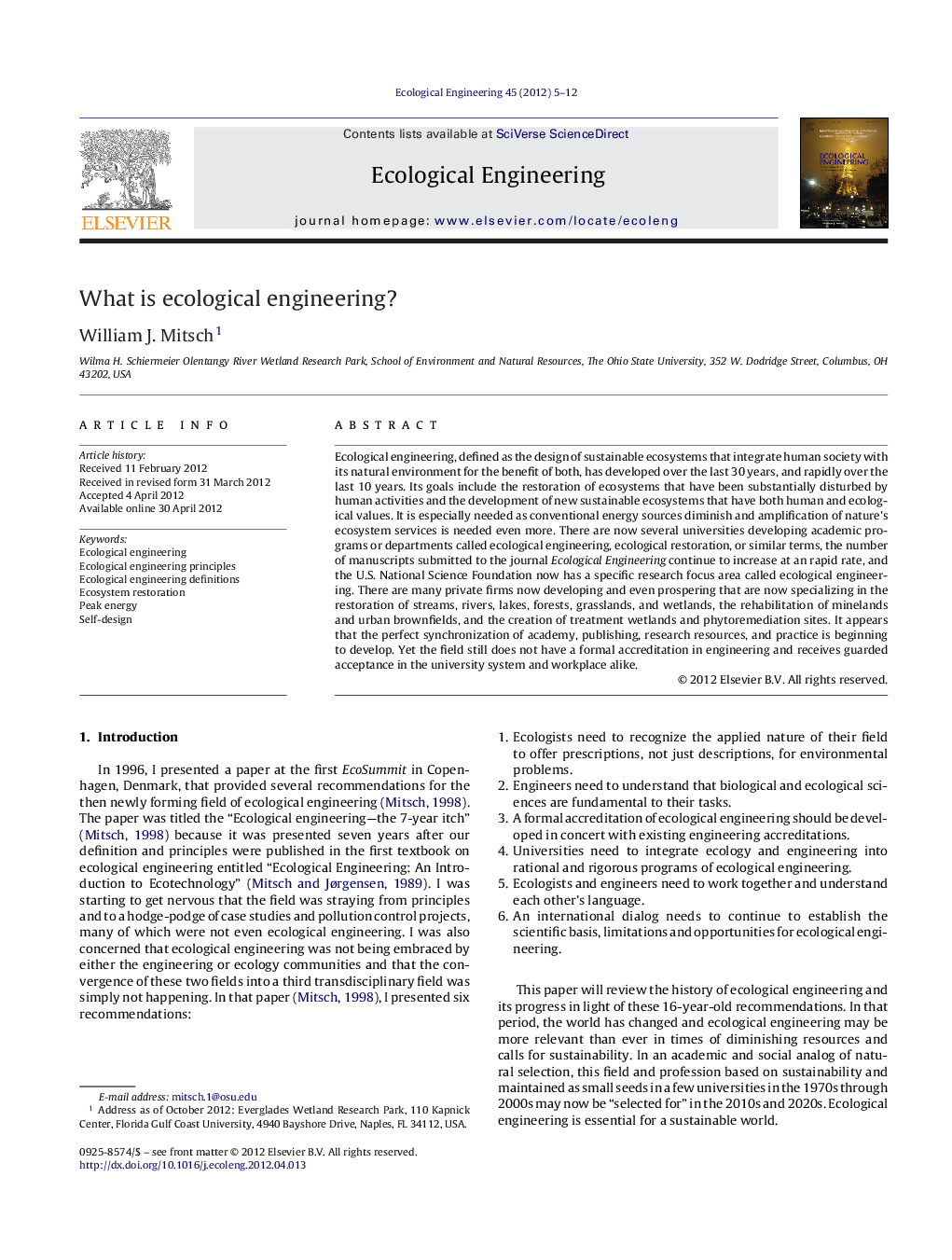| Article ID | Journal | Published Year | Pages | File Type |
|---|---|---|---|---|
| 4390043 | Ecological Engineering | 2012 | 8 Pages |
Ecological engineering, defined as the design of sustainable ecosystems that integrate human society with its natural environment for the benefit of both, has developed over the last 30 years, and rapidly over the last 10 years. Its goals include the restoration of ecosystems that have been substantially disturbed by human activities and the development of new sustainable ecosystems that have both human and ecological values. It is especially needed as conventional energy sources diminish and amplification of nature's ecosystem services is needed even more. There are now several universities developing academic programs or departments called ecological engineering, ecological restoration, or similar terms, the number of manuscripts submitted to the journal Ecological Engineering continue to increase at an rapid rate, and the U.S. National Science Foundation now has a specific research focus area called ecological engineering. There are many private firms now developing and even prospering that are now specializing in the restoration of streams, rivers, lakes, forests, grasslands, and wetlands, the rehabilitation of minelands and urban brownfields, and the creation of treatment wetlands and phytoremediation sites. It appears that the perfect synchronization of academy, publishing, research resources, and practice is beginning to develop. Yet the field still does not have a formal accreditation in engineering and receives guarded acceptance in the university system and workplace alike.
